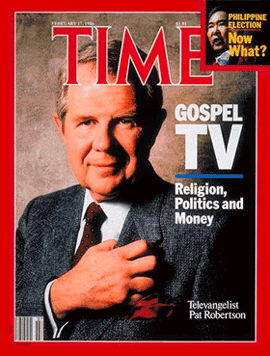 Fortune-telling-as-fraud has been in the news recently. There is some political push and pull around local anti-fortune-telling ordinances and laws around the country right now. The political pressures are complex and do not always fall into the typical pattern of Left versus Right or religious versus secular. The implications of these laws strike at some fundamentals of the American political identity, including the freedom of religion and freedom of speech. On the other side of the issue is the need to protect citizens from scams and con artists.
Fortune-telling-as-fraud has been in the news recently. There is some political push and pull around local anti-fortune-telling ordinances and laws around the country right now. The political pressures are complex and do not always fall into the typical pattern of Left versus Right or religious versus secular. The implications of these laws strike at some fundamentals of the American political identity, including the freedom of religion and freedom of speech. On the other side of the issue is the need to protect citizens from scams and con artists. First of all, I think we need to acknowledge that there is a basis for concern, not only for out-and-out fraud, but also a concern for our seniors and others simply being taken advantage of.

Take the case of Lola Miller, AKA "Miss Donna." She is alleged to have accepted $500,000 from her client for the service of cleansing a curse that Miller claimed to have divined in the abdomen of the client. The $500,000 curse removal was not helpful, however, in protecting the client from the cancer to which she succumbed three years ago. You can read the full story at the Mercury News. Of course there are other cases of a similar flavor. It's these kind of news items that keep the ordinances in place.
On the opposing side of the issue there are a myriad of very serious issues around fairness, religious bigotry, the nature of religion, and the definition of fraud. But, before we get into that, we should take a closer look at these laws.
According to a recent AP article on the subject, the City of Philadelphia has lately "discovered" a decades-old prohibition against fortune-telling for profit and, despite years of disregard, the State Law was suddenly enforced with a crack down on "psychics, astrologers and tarot card readers." Meanwhile, just last year, Livington Parish, Louisiana newly enacted an anti-fortune-telling law. It's difficult to say how many towns, counties or even states have such laws on the books, and complicating the picture further, one never seems to know what local government entity might choose to enforce the law or when.
There is, apparently, some resistance to such laws. One such law, in Lincoln, Nebraska, was struck down in Federal Court as unconstitutional. According to the same AP article, similar laws in several states are also being challenged in court.
Such laws can have an obvious and direct impact on tarot card readers, psychics, urban shamans, and other soothsayers, but can also impact therapists, clergy and others. For instance, therapists have been know to use techniques such as I-Ching, Tarot and Feng Shui among others that have been identified and targeted under some of these laws. Likewise, some evangelical and Pentecostal churches are known to "prophesy." Even more at risk are the "prosperity gospel" churches that have recently come under scrutiny by the media as well as some law makers.
The legal arguments against these laws are of two sorts. Firstly, the argument goes, that predicting the future is free speech. The government has no ability or right to govern it even if people are charging money for it. Secondly, insofar as divination is a religious practice, it is protected under our constitutional right to freedom of religion. This argument is being made by a Wiccan priest who is challenging the Louisiana law.
Beyond these basic constitutional arguments, there needs to be more attention paid to the issue of fair enforcement and religious bigotry. Regardless what direction you lean toward religious freedom versus protection from fraud, there needs to be objectivity and discipline, especially among prosecutors, with even and fair enforcement of legal principles.

How can we prosecute people like Lola Miller for claiming to lift a curse, when televangelists such as Pat Robertson are allowed to claim to influence the outcome of someone's medical illness by praying to God and taking peoples' money for his "service?" How much money, I wonder, gets paid to preachers and televangelists who present very similar claims to "Miss Donna's." How often do seniors and vulnerable individuals give large sums of money? Is anyone paying attention? Is anyone protecting their "victims?"
If communities are going to pass such laws to protect their vulnerable citizens, the laws and the principles on which they are based must be enforced evenly and fairly across the religious spectrum. To do anything less is a form of blatant religious prejudice as well as an attack on our constitution.
The fact that a few fortune-tellers are unethical does not mean that every Tarot reader or dowser is a con artist any more than every pastor is a fraud just because Oral Roberts fraudulantly claimed he would be struck down by God if he didn't raise ten million dollars.





1 comment:
Post a Comment